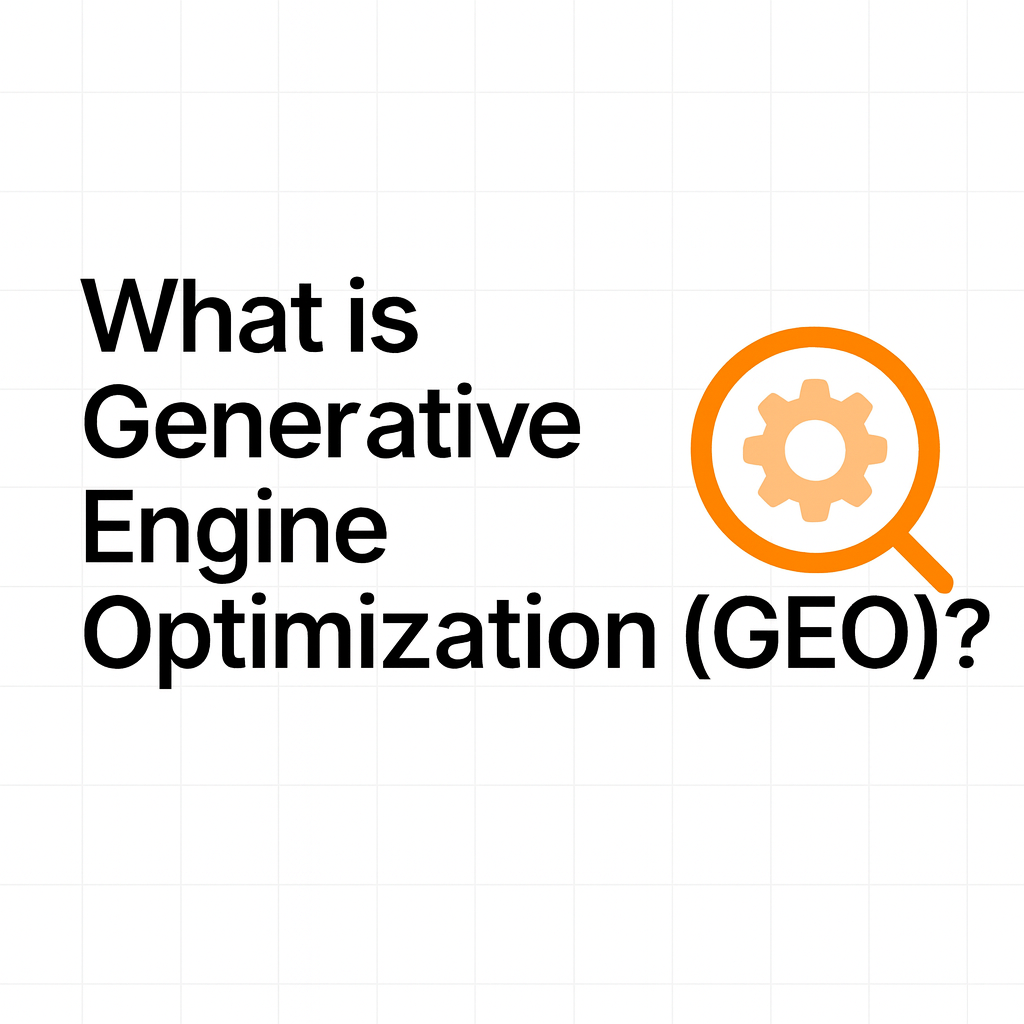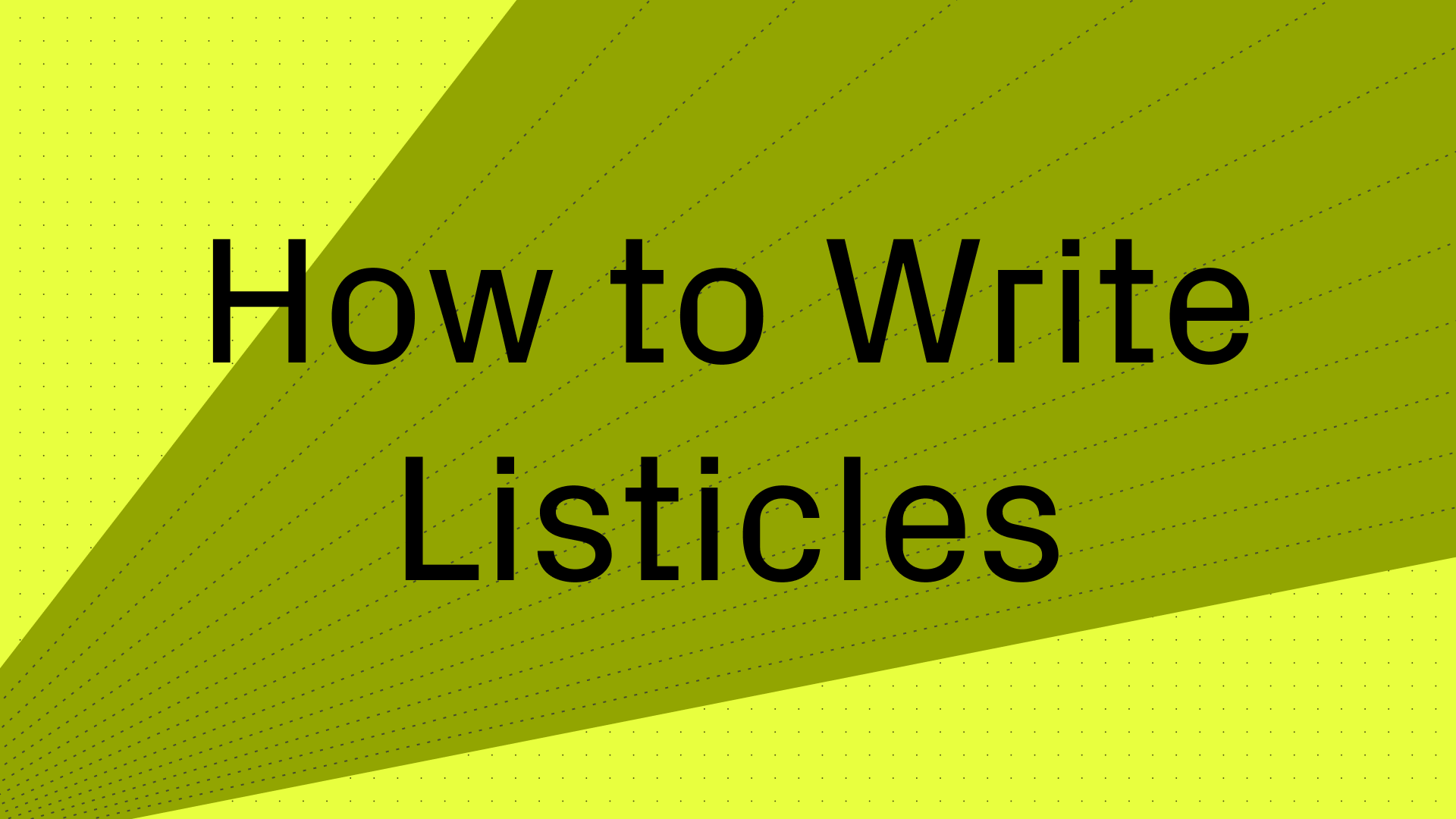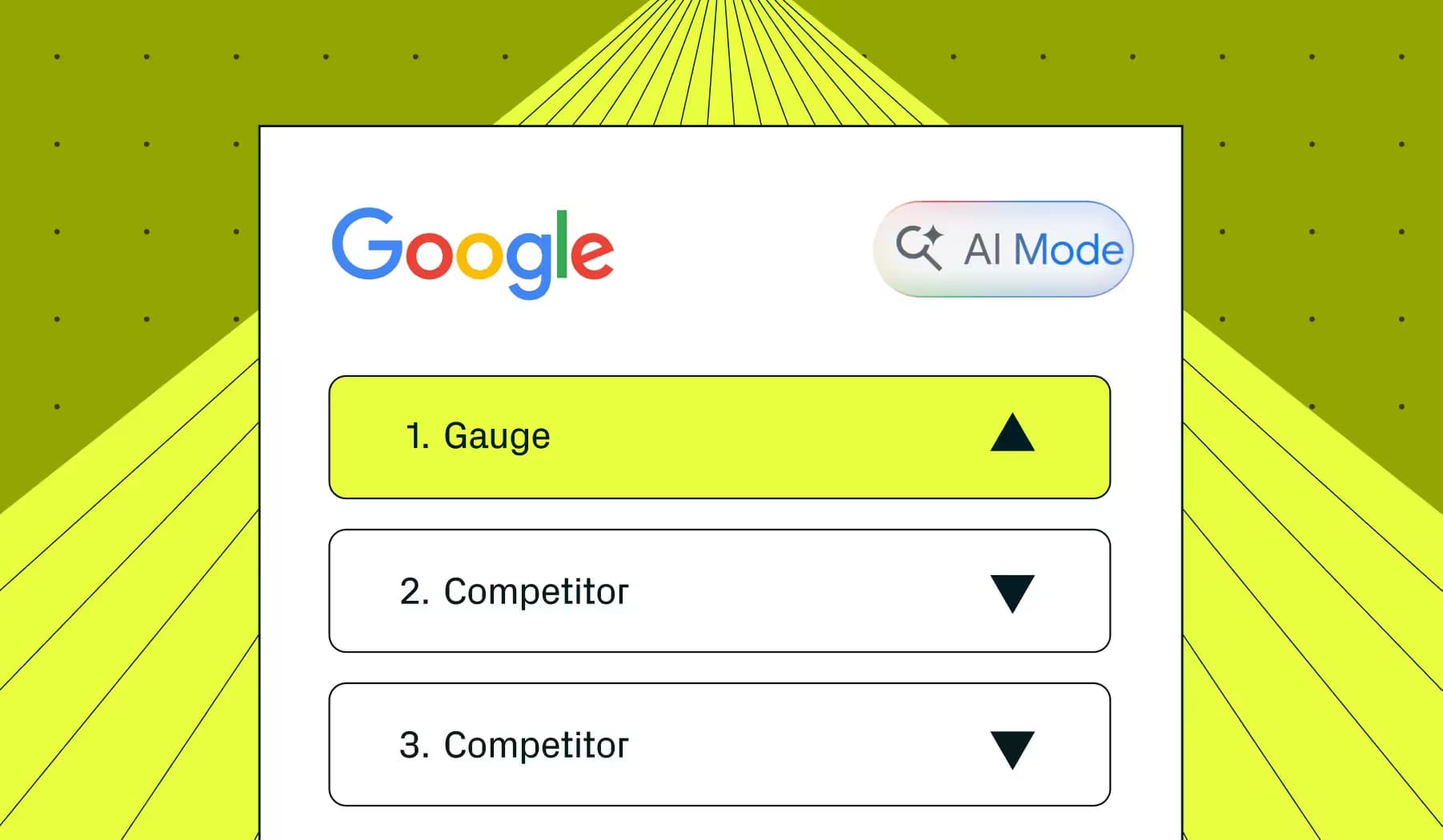What is Generative Engine Optimization (GEO)?


What is GEO?
The digital marketing landscape is undergoing a seismic shift. While search engine optimization (SEO) has dominated online visibility strategies for over two decades, a new paradigm is emerging that's fundamentally changing how brands connect with their audiences. Generative Engine Optimization (GEO) has emerged as the hottest new discipline in digital marketing, representing the evolution from traditional search to AI-powered discovery.
As AI assistants and generative engines become the primary way people find information, understanding and implementing GEO isn't just an advantage—it's becoming essential for survival in the digital marketplace.
Understanding Generative Engine Optimization
Generative Engine Optimization (GEO) is the art of sweet-talking AI models into mentioning your brand when people ask them questions. Unlike traditional SEO, which focuses on ranking high in search engine results pages, GEO aims to get your content directly cited when AI engines answer user queries.
Generative Engine Optimization refers to the strategic creation of content using AI, with the goal of: Think of it as the next evolution of SEO — where content isn't just manually optimized post-creation, but is generated from the start to meet algorithmic expectations and user needs.
The fundamental difference lies in the end goal: Traditional SEO AI optimizes for rankings on search engine results pages (SERPs). AI GEO optimizes for citations and mentions within AI-generated responses. It's the difference between being listed in a phone book versus being recommended by a trusted friend.
The data sources are also different. SEO tools collect data on keyword volumes from extrapolations on Google Ad data. GEO data is based on prompts sent to AI chat interfaces and the answers that they return. New tools like Cloro enable real user interface responses from prompts.
The Rise of AI-Powered Search
The numbers tell a compelling story about the shift toward AI-driven search. ChatGPT reached 100 million users faster than any app in history, and as of late 2024, it now processes over 2 billion queries monthly. Meanwhile, Google's AI Overviews appear on billions of searches every month—at least 13% of all SERPs, creating fresh opportunities for brands to showcase their expertise.
60% of searches now end without the user clicking to another website, and around 80% of search users rely on AI summaries at least 40% of the time. This dramatic shift means that traditional SEO alone is no longer sufficient for maintaining visibility in an increasingly AI-dominated search landscape.
How GEO Differs from Traditional SEO
While SEO and GEO share some foundational principles, their approaches and objectives differ significantly:
Traditional SEO focuses on:
- Keyword optimization and density
- Backlink building and domain authority
- Technical site optimization
- Ranking positions in search results
- Driving click-through traffic to websites
GEO prioritizes:
- Semantic matching optimization: AI engines prioritize content that closely matches the intent and context of user queries through embedding similarity
- Natural language and conversational content
- Entity relationships and context
- Being cited or mentioned in AI responses
- Building authority that AI engines recognize and trust
Traditional search was built on links. GEO is built on language. This fundamental shift requires content creators to think beyond keywords and focus on creating genuinely helpful, well-structured information that AI can easily understand and reference.
Key GEO Strategies and Best Practices
Content Optimization for AI
Traditional SEO rewards precision and repetition; generative engines prioritize content that is well-organized, easy to parse, and dense with meaning (not just keywords). Successful GEO content should:
- Use clear, conversational language that mirrors how people actually speak
- Structure information with descriptive headings and bullet points
- Include authoritative sources, statistics, and expert quotes
- Answer specific questions comprehensively
- Provide unique insights and actionable advice
Technical Implementation
Technical SEO isn't just for Google—it's critical for GEO too. A fast, crawlable site ensures AI can access and understand your content without hiccups. Key technical considerations include:
- Implementing structured data and schema markup
- Ensuring fast loading times and mobile optimization
- Creating clear site architecture with proper HTML tags
- Allowing AI crawlers access through robots.txt files
- Using server-side rendering for JavaScript-heavy sites
Measuring GEO Success
Unlike traditional SEO metrics, GEO success requires new measurement approaches. It's no longer just about click-through rates, it's about reference rates: how often your brand or content is cited or used as a source in model-generated answers.
Key metrics to track include:
- Brand mentions in AI-generated responses
- Citation frequency across different AI platforms
- Quality and context of AI references
- Indirect traffic increases from brand awareness
The Future of Search and GEO
As the format of the answers changes, so does the way we search. AI-native search is becoming fragmented across platforms like ChatGPT, Perplexity, Claude, and Gemini, each powered by different models and user intents. The future of GEO will be shaped by:
- Multimodal search capabilities combining text, voice, and visual queries
- Increased personalization and contextual understanding
- Real-time information processing and synthesis
- Integration across multiple platforms and touch points
- Continued evolution of AI model capabilities and preferences
The future of search is dynamic, and those who embrace AI-driven optimization will be best positioned for long-term success. Early adopters of GEO strategies are already building sustainable competitive advantages while the space is still developing.
How Brands Use Gauge to Optimize GEO
For brands serious about dominating AI search, Gauge helps your brand show up in more AI answers through advanced AI SEO and SEO AEO capabilities. Outrank your competitors and optimize for Generative Engine Optimization with the most comprehensive AI visibility platform available.
What sets Gauge apart from basic monitoring tools is its comprehensive approach to GEO optimization. Unlike tools that simply track mentions, Gauge provides deep analytics across all major AI engines while delivering specific, actionable recommendations to improve your brand's presence. The platform's advanced prompt tracking capabilities allow brands to monitor how AI responds to specific prompts over time, tracking frequency of brand mentions versus competitors across thousands of queries.
Gauge's advanced gap and coverage analysis: Identify exactly where your brand is missing from AI answers (Gap Analysis) and where it currently appears (Coverage Analysis) with actionable insights. This level of precision helps marketing teams understand not just whether they're being mentioned, but why certain competitors are being cited instead, providing a clear roadmap for improvement.
The platform's citation-level analytics feature tracks the top sources AI relies on when generating answers, analyzing your website's citation rate and mention rate when cited. This intelligence is crucial because AI engines have different content preferences and citation patterns, and understanding these patterns is essential for developing effective content strategies.
Perhaps most valuable is Gauge's actionable recommendations engine, which receives concrete, specific actions you can take to boost your brand's visibility in AI answers, not just generic advice. Rather than overwhelming users with raw metrics they can't interpret, Gauge provides the intelligence needed to make strategic decisions about content optimization and competitive positioning.
For businesses requiring comprehensive data with actionable insights, Gauge represents the evolution from basic monitoring to strategic optimization. The brands winning in AI search aren't necessarily the ones with the biggest budgets or the most content. They're the ones with the clearest understanding of how AI engines make decisions—and the tools to act on those insights. Gauge provides that clarity, transforming the complexity of multi-platform AI optimization into actionable intelligence that drives measurable business results.
Frequently Asked Questions
What is Generative Engine Optimization (GEO)?
GEO is the strategic process of optimizing content to appear prominently in AI-generated responses. Unlike traditional SEO which targets search rankings, GEO focuses on getting your content cited when AI engines answer user queries. Gauge offers comprehensive GEO analytics and recommendations to help brands succeed in this emerging landscape.
How is GEO different from traditional SEO?
While SEO optimizes for search engine rankings through keywords and backlinks, GEO focuses on natural language, entity relationships, and authority signals that AI engines recognize. GEO requires content that's conversational, well-structured, and authoritative. Gauge helps bridge both strategies by providing insights into how AI engines evaluate and cite content.
Which AI platforms should I optimize for with GEO?
The major platforms include ChatGPT, Perplexity, Claude, Gemini, and Google AI Overviews. Each platform has different content preferences and citation patterns. Gauge provides comprehensive coverage across all major AI engines, helping you understand platform-specific optimization opportunities.
How do I measure GEO success?
GEO success is measured through brand mentions in AI responses, citation frequency, share of voice versus competitors, and the quality of AI references. Traditional metrics like click-through rates are less relevant. Gauge's analytics platform provides comprehensive measurement tools specifically designed for tracking GEO performance.
Can I use GEO alongside my existing SEO strategy?
Absolutely! GEO and SEO complement each other effectively. Many foundational SEO principles like quality content and technical optimization benefit GEO as well. Gauge helps you understand how to optimize content for both traditional search engines and AI platforms simultaneously.
What makes Gauge better than other GEO tools?
Gauge is purpose-built specifically for GEO, offering deeper AI-specific analytics, comprehensive platform coverage, and advanced recommendation engines. Unlike basic monitoring tools, Gauge provides actionable insights that tell you exactly how to improve your AI visibility based on competitive analysis and citation patterns.
How quickly can I see results from GEO optimization?
GEO typically shows results faster than traditional SEO, often within 2-8 weeks of focused optimization. AI engines can incorporate new information more quickly than traditional search crawling and indexing. Gauge's analytics help you track improvements and identify optimization opportunities in real-time.
What content performs best for GEO?
AI engines favor content that's well-structured, authoritative, and answers specific questions comprehensively. Content with statistics, expert quotes, and clear formatting tends to perform well. Gauge's gap analysis helps identify what types of content perform best in your industry and where opportunities exist.
Do I need technical expertise to implement GEO?
While some technical elements help (like schema markup and site speed), much of GEO focuses on content strategy and structure. Gauge provides specific, actionable recommendations that marketing teams can implement without deep technical knowledge, making GEO accessible to businesses of all sizes.
Is GEO worth investing in for small businesses?
Yes! Since the field is still emerging, small businesses can compete effectively with larger competitors by implementing GEO strategies early. Gauge's comprehensive analytics help small businesses identify and capitalize on GEO opportunities in their niche.
How does Gauge track AI mentions across different platforms?
Gauge uses advanced prompt tracking to monitor how different AI engines respond to thousands of queries related to your industry. The platform tracks brand mentions, citation patterns, and competitive positioning across all major AI platforms, providing a comprehensive view of your AI visibility.
What's the difference between monitoring tools and optimization platforms like Gauge?
Basic monitoring tools simply track whether you're mentioned, while optimization platforms like Gauge provide deep analytics on why you're mentioned and specific recommendations for improvement. Gauge's competitive intelligence and gap analysis features help you understand exactly what actions to take to improve your AI visibility.
How does Gauge help with content creation for GEO?
While Gauge focuses on analytics and optimization recommendations rather than content creation, its insights inform highly effective content strategies. The platform identifies content gaps, successful citation patterns, and competitor strategies that guide your content development efforts.
What happens if AI algorithms change?
AI engines evolve rapidly, which is why real-time monitoring and analytics are crucial. Gauge's platform adapts to algorithm changes and model updates, ensuring your optimization strategies remain effective as the AI landscape evolves. The platform's continuous monitoring helps you stay ahead of changes rather than react to them.
Related Blogs
 How to Write Listicles That Rank in AI Search: (Best practices from 29 million answers analyzed)
How to Write Listicles That Rank in AI Search: (Best practices from 29 million answers analyzed)
.png)


